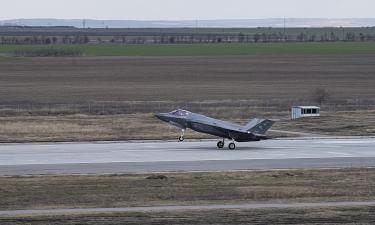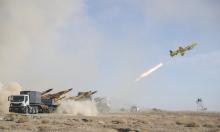EU unveils five ridiculous principles to teach Russia lessons of democracy the EU has never learned itself
The Foreign Affairs Committee of the European Parliament has prepared a draft report for a long-term strategy of the European Union in its relations with Russia. MEPs already repeatedly adopted tough anti-Russian resolutions in the past. The committee continued this "good old" tradition.
Five principles of MEPs
According to members of the European Parliament, the EU will take five recommendations as guidelines in its work to build relations with Russia.
The first is about the "containment of the Russian threat." The draft document stresses that the European Union, together with NATO, should counteract Russia's "aggressive policy." In the event "aggressive actions" continue, the EU may take actions to disconnect Russia from SWIFT and take measures to reduce dependence on Russian oil and gas, at least while President Putin is in power.
The second principle is the fight against Russian influence and Russia's "hybrid threats" both in the EU and neighboring countries.
"Democracy comes first" the third principle runs. In other words, the prospects for relations with Russia should depend on the willingness of the Russian authorities to respect human rights and ensure free elections. In addition, it is proposed to consult the United States to coordinate actions for the sake of "democracy protection." It goes about such actions as joint sanctions, investigations, support for human rights defenders, etc.
Another principle sounds like "engagement to support democracy". It is, in particular, proposed to create "Free Russian Television" with round-the-clock airtime to counter the "propaganda of the Putin regime." The EU, as the document says, must also be prepared not to recognize the results of the elections to the Russian State Duma in 2021 if they are not fair.
As an incentive for the development of democracy in Russia, the document proposes visa liberalization, a modernization program and strategic partnership.
Finally, the fifth principle is about cooperation with the countries of the Eastern Partnership, so that they serve as a good example that would push the people of Russia to supporting democracy."
The strange world of the European Parliament
Obviously, the above-mentioned program has been designed for many years. At the same time, it is completely unclear what time frame MEPs have in mind to consider the program at least partially successful.
For example, the Eastern Partnership program has been functioning since 2009. It includes Azerbaijan, Armenia, Belarus, Georgia, Moldova and Ukraine. That makes 12 years already. There are two questions. First off, which of these countries could serve as an example for the people of Russia in terms of support for democracy? Secondly, what should the EU do for the program to show signs of life and how long will it take?
One does not even need to say anything about the project of Free Russian Television — it is clear what to expect from it, if it becomes real.
As for visa liberalization, do members of the European Parliament really believe that this could be a serious incentive for Russian citizens?
It is an open secret that resolutions of the European Parliament are advisory in nature. However, Russia should not shrug such projects off. They look strange indeed. MEPs do not seem to appear as people who try to analyse what pushes Russia to making certain decisions.
It is worthy of note that anti-Russian resolutions receive an overwhelming majority. That said, there are no forces in the European Parliament that would be interested in normalizing relations with Russia.
Subscribe to Pravda.Ru Telegram channel, Facebook, RSS!




